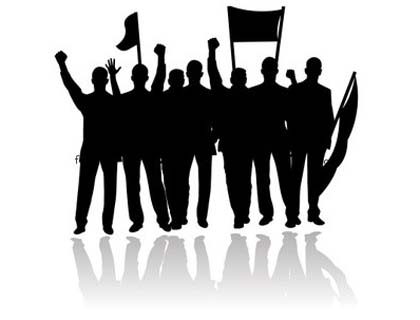On occasions, circle of experts and intellectuals find common people's murmurings and concerns base less, illogical and reflection of their own individual failures or linked to propagandas. But sometimes, taking notice of what they are talking about does not really alienate us from realities, instead would help to figure out ground realities.
Historically, Afghan people do not trust rulers and have the idea that rulers—now representatives— do not really care about their miseries and problems. They think that rulers and their representatives have had their own concerns which have nothing to do with challenges faced by the people daily. The notion is supported or strengthened by historical evidences. Since the very long time, as modern Afghan history shows, the demands of people were different from rulers. During past decades, people have been badly suffering and nothing was in abundance for them to enjoy and think about something else. What has remained the most important thing in their life is hoping for least standard of life and having subsisting essential goods in disposal in order to avoid the nightmare of starvation and atrocity of nature, like extreme changes of temperature, blowing winds, and etc.
During past decades, the economic condition of common people has not been good and essential goods and services are still not guaranteed and would not be in future at prospective. People have been wrangling with death and fighting poverty and starvation, on the other hand, their rulers, like rules of the past periods, have had everything in abundance.
Here most of the people claim that current regime bears similar characteristic of the past ones, which is not of course much unrealistic. Presently we have a dictatorial political system or government, but only folded in democratic veil. What we call as democracy here is elections, freedom of expression, burst-up of press and Medias, and constitution. But there is no checks and balances among three branches of power, no rule of law and accountability of officials against their wrongdoings. For God Sake, election can never denote a democracy. There are many countries across the globe, which are regularly holding elections, but are not democratic. Say, for instance, Egypt of Hosni Mubarack, and Tunisia of Ben Ali, both were holding elections on regularly basis, but nothing was about change. Only the holders of posts used to change but the general authoritarian characteristic of government would continue intact.
Seemingly, our democracy is not far better, or even worse than that of Egypt or some other countries, because here still international community has strong dominance and gets things right sometime directly when there is obvious violation of democratic laws. In another word, Kabul officials think that they have to follow what the international community dictates them on various issues; otherwise they might be kicked out. Presently, even the monthly salary and stipend of our officials are paid through the pockets of international financial institutions like IMF and donor countries, who are involved in the country on the basis of various issues. Maintaining this linkage, Afghan officials try to do their best or at least do not cross drawn redlines, otherwise, the tie would break up and they would not be able to pour hundreds of thousands of dollars into their own pockets.
Even in the presence of international community, the democracy seems in moribund and, perhaps, wouldn't heal unless a miracle awakening take place by new, educated Afghan youngsters, who decline the tradition of their forefathers and are well-aware of miseries of elder generation caused due to lack of a people-oriented administration, the thing which make me optimistic. Our government is far more similar to previous regimes, except Taliban, rather to democratic system in many developing and developed countries.
Definitely elections are held regularly, but riddled with frauds. The presidential election and subsequent parliamentary elections were severely criticized by unbiased domestic and international observers. There were talks of a million fake votes casted in favor of President Hamid Karzai. His challenging rival, Dr Abdullah Abdullah denied taking part in second round of election and, therefore, President Karzai was announced winner, without going for the second round. Abdullah reasoned that non-existence of an Independent Election Commission and interference of President Karzai's supporters in ultimate result left nothing for him to hope for success.
However with changes of heads and members of election commissions, the parliamentary election was good and many were in view that that was the only possible elections could be held in the critical situation. But, generally, it was not convenient the controversies broke out right after the announcement of the result and still continue in present political brinkmanship between President Karzai and MPs.
After the announcement of the result of months-long investigation of special Tribunal, established by Supreme Court and got the approval of President, in which 62 sitting MPs were disqualified, MPs vowed to let not one of their fellows replaced. In a revengeful measure, they disqualified chief justice, four other members of Supreme Court and Attorney General in absence and even asked President to resign.
The situation is worse in the case of "rule of law". Report of especial tribunal and followed controversies among President, MPs, Attorney General, Supreme Court, and resignation of Abdul Qadir Fitrat, the former chief of Central Bank, and his right allegations, obviously determined the terrible state of law. There are circles within the government involved in drug trafficking, but no body cares or, if cares, are unable to do anything. Having a linkage with administration does not entice people to act according to law, becomes an advantage to violate laws and does not get punished. If the family members of President and vice president are involved in "criminal activities" and are not tried in court of laws, then what if we had elected him and he had captured power through force? Both are same. If MPs voices are not heard, what if we did not have a parliament?

